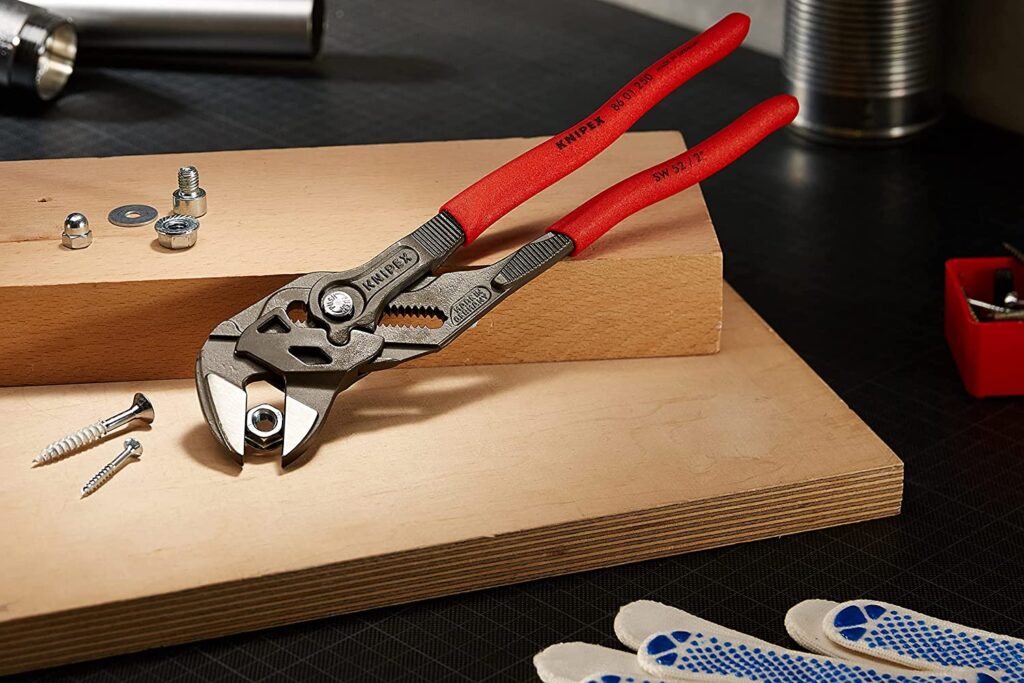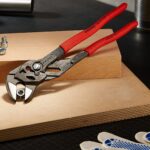If you’ve ever assembled furniture or worked on a bike, you’ve likely encountered an Allen wrench. These small but mighty tools are essential for tackling a variety of tasks around your home or workshop. Understanding what Allen wrenches are used for can make your DIY projects smoother and more efficient.
Allen wrenches, also known as hex keys, fit into hexagonal socket screws, providing the perfect grip to tighten or loosen them. They’re commonly found in furniture assembly, bike repairs, and even automotive work. Knowing when and how to use these tools can save you time and frustration on your next project.
Understanding Allen Wrenches
Allen wrenches fit hexagonal socket screws, making them essential tools for precise fastening and loosening. Knowing their design and variations improves your ability to choose the right one for the task.
What Is an Allen Wrench?
An Allen wrench, also called a hex key, is a small, L-shaped tool with a hexagonal cross-section. You use it to turn screws and bolts with hexagonal sockets, providing better control and torque than flat or Phillips screwdrivers. Its compact design allows access to tight spaces where other tools can’t reach.
Types and Sizes of Allen Wrenches
Hex keys come in two main types: standard and ball-end. Standard keys have straight ends for full torque application, while ball-end keys offer slight angle flexibility up to 25 degrees, useful in cramped areas. Sizes range from as small as 0.7 mm to over 10 mm in metric units, and from 0.028 inches to more than 0.5 inches in imperial units. Sets usually include multiple sizes to cover a wide range of fasteners.
| Type | Feature | Typical Size Range (Metric) | Typical Size Range (Imperial) |
|---|---|---|---|
| Standard | Straight ends for torque | 0.7 mm to 10+ mm | 0.028 in to 0.5+ in |
| Ball-end | Angled use up to 25° | 1.5 mm to 8 mm | 0.06 in to 0.3 in |
Using the correct size ensures a firm grip, prevents stripping, and maintains fastener integrity.
Common Uses of Allen Wrenches
Allen wrenches serve as versatile tools in various applications. They excel in tasks needing precision and torque control with hexagonal socket screws.
Furniture Assembly
You rely on Allen wrenches to assemble flat-pack furniture like desks, chairs, and cabinets. They fasten bolts and screws tightly, ensuring structural stability. Their compact design allows you to work in confined spaces within the furniture frame.
Bicycle Maintenance
Allen wrenches adjust components such as seat posts, handlebars, and brake systems on bicycles. Their precision fits hex bolts, enabling effective tuning and repairs. Ball-end wrenches aid in reaching screws at awkward angles during routine bike maintenance.
Automotive Repairs
You use Allen wrenches to handle engine parts, brake calipers, and interior fixtures in vehicles. Their torque capability prevents stripping fasteners under high pressure. Metric sizes often match automotive hex bolts, ensuring proper fit during repairs.
Electronics and Appliances
Allen wrenches open casings and secure parts in electronics and household appliances. Their small sizes fit miniature hex screws without damage. This precision helps you safely service devices like computers, printers, and kitchen gadgets.
Advantages of Using Allen Wrenches
Allen wrenches offer distinct benefits that make them indispensable for various mechanical and assembly tasks. Their design and versatility provide advantages that improve your efficiency and protect hardware integrity.
Ease of Use in Tight Spaces
Allen wrenches excel in confined areas due to their compact, L-shaped design. You gain access to hexagonal socket screws where traditional tools like screwdrivers cannot fit. Ball-end variants increase usability by allowing you to turn screws at angles up to 25 degrees without sacrificing grip. This feature proves valuable in assembling furniture or repairing bikes where space often limits tool movement.
Preventing Damage to Fasteners
Allen wrenches ensure a precise fit with hexagonal sockets, which reduces the risk of stripping or rounding screw heads. Using the correct size creates even torque distribution across the fastener surfaces, minimizing wear and tear. This accuracy preserves both fasteners and tools, extending their lifespan and maintaining structural stability in assembled items.
Tips for Using Allen Wrenches Effectively
Choose the correct Allen wrench size to avoid stripping screws or damaging fasteners. Match the wrench size precisely to the hex socket, using measuring tools if needed.
Apply steady, controlled pressure when turning the wrench, preventing slipping and rounding of screw heads. Use your body weight to increase torque with the long arm when extra force is necessary.
Select ball-end Allen wrenches when working in tight or angled spaces, as they allow for up to 25 degrees of off-axis turning while maintaining engagement.
Maintain Allen wrenches by wiping them clean after use and storing them in a dry place. Regularly inspect for wear or bent arms to ensure effective torque transfer.
Use the short arm of the L-shape for fast turning in low-torque situations and the long arm for higher torque applications. This approach balances speed and control.
Avoid forcing the wrench if the screw resists; try applying penetrating oil or using a wrench with a longer arm for greater leverage instead.
Combine Allen wrenches with a handle or key holder for improved grip and leverage during heavy-duty tasks, reducing hand fatigue and increasing efficiency.
Keep your workspace well-lit and organized, making it easier to access the correct Allen wrench size quickly and enhancing precision when working with small fasteners.
Conclusion
Allen wrenches are indispensable tools that make many repair and assembly tasks much easier. By choosing the right size and type, you’ll ensure a secure fit and avoid damaging your fasteners. Whether you’re working on furniture, bikes, or electronics, having a reliable Allen wrench set will boost your confidence and efficiency.
Keep your tools in good condition and use them thoughtfully to get the best results. Mastering the use of Allen wrenches means you’re well-equipped to handle a wide range of projects with precision and ease.
Frequently Asked Questions
What is an Allen wrench and why is it important?
An Allen wrench, or hex key, is a small L-shaped tool designed to fit hexagonal socket screws. It’s essential for tasks like furniture assembly, bike repairs, and automotive work because it provides better control and torque than traditional screwdrivers.
What are the different types of Allen wrenches?
There are two main types: standard keys with straight ends for maximum torque, and ball-end keys that allow angled use up to 25 degrees, ideal for accessing screws in tight or awkward spaces.
What sizes do Allen wrenches come in?
Allen wrenches range from very small sizes around 0.7 mm to over 10 mm in metric units, and from 0.028 inches to more than 0.5 inches in imperial units. Using the correct size is crucial for a secure fit.
In which tasks are Allen wrenches most commonly used?
They’re frequently used for furniture assembly, bicycle maintenance, automotive repairs, and servicing electronics or appliances with hex screws, thanks to their versatility and precise fit.
Why should I use the correct size Allen wrench?
Using the right size ensures a firm grip on screws, prevents stripping or damage to fasteners, and evenly distributes torque, which extends the life of both tools and fasteners.
What are the advantages of using ball-end Allen wrenches?
Ball-end wrenches allow you to turn screws at angled positions up to 25 degrees, making them especially useful in tight spaces where straight access isn’t possible.
How can I maximize the effectiveness of my Allen wrenches?
Select the right size, apply steady pressure, use the short arm for quick turning in low-torque tasks, and consider ball-end keys for hard-to-reach screws. Also, keep your tools clean and well-maintained.
What maintenance is needed for Allen wrenches?
Regularly clean and inspect your Allen wrenches for wear or damage. Store them properly in a holder to maintain their shape and improve grip during heavy use.
Can Allen wrenches damage fasteners?
They can if the wrong size is used or excessive force is applied. Always use the correct size and apply steady pressure to avoid stripping or rounding the screw heads.
How does the L-shape design of an Allen wrench help?
The L-shape provides two leverage arms: the long arm for extra torque and the short arm for fast, low-torque turning, improving control and efficiency in various tasks.

